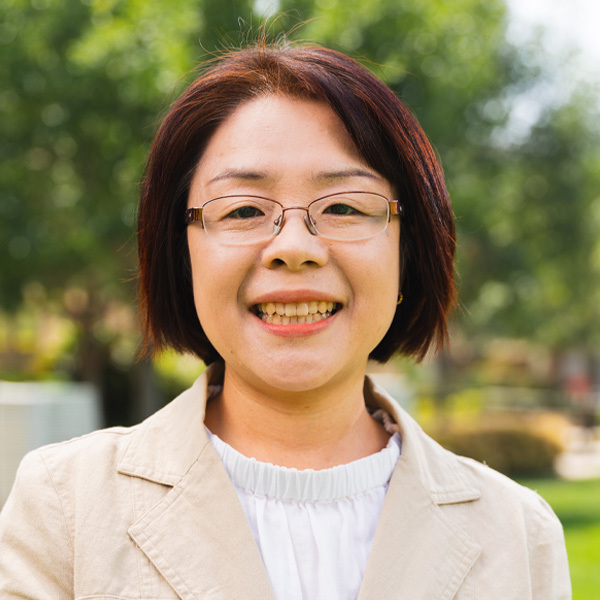- Ph.D., Seoul National University, South Korea
- M.S., Seoul National University, South Korea
- B.S., Chungbuk National University, South Korea

Assistant Professor of Chemistry
Dr. Heeyeon Cho is teaching Biochemistry II, Principles of general, organic, and biochemistry lectures, and labs in the under»ĆąĎĘÓƵ B.S. programs. She enjoys integrating the Christian faith during the class lectures and has a passion to see God’s glory in transforming students’ lives who can lead many to righteousness and be the light and the salt of this world (Daniel 12:3). Prior to joining the faculty at Biola, Dr. Cho was a research professor at the University of Southern California leading the researches on finding novel therapeutic drugs for the treatment of brain tumors and other systemic tumors and their cellular targets and mechanisms. Dr. Cho also conducted post-doctoral research at UC Davis and UCLA. She published over 40 peer-reviewed journals in the fields of cancer therapeutic drugs, protein biochemistry, and biotechnology.
Dr. Cho’s current research interest is Autophagy. Autophagy is a genetically well-controlled cellular process in mammalian cells that degrades damaged or unnecessary organelles and proteins in a lysosome-dependent manner. Autophagy is a “double-edged sword” in tumors. It prevents tumor initiation in healthy tissues but favors cancer progression once the tumor is formed. She is interested in targeting the Autophagy pathway as a possible therapeutic strategy and a way to overcome drug resistance.